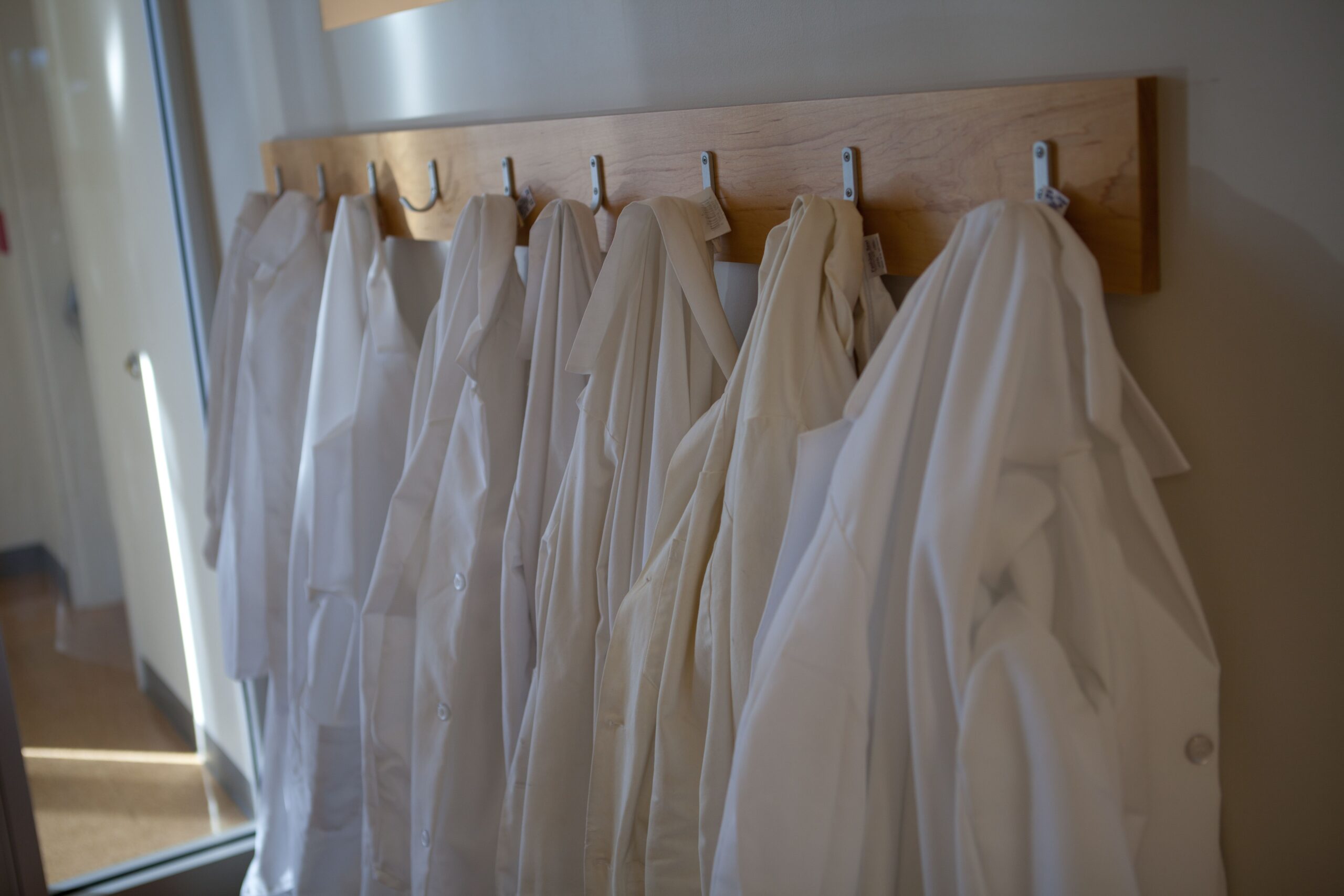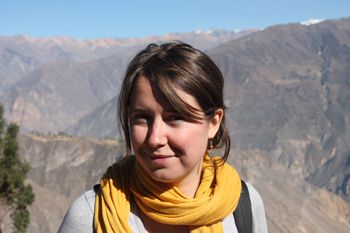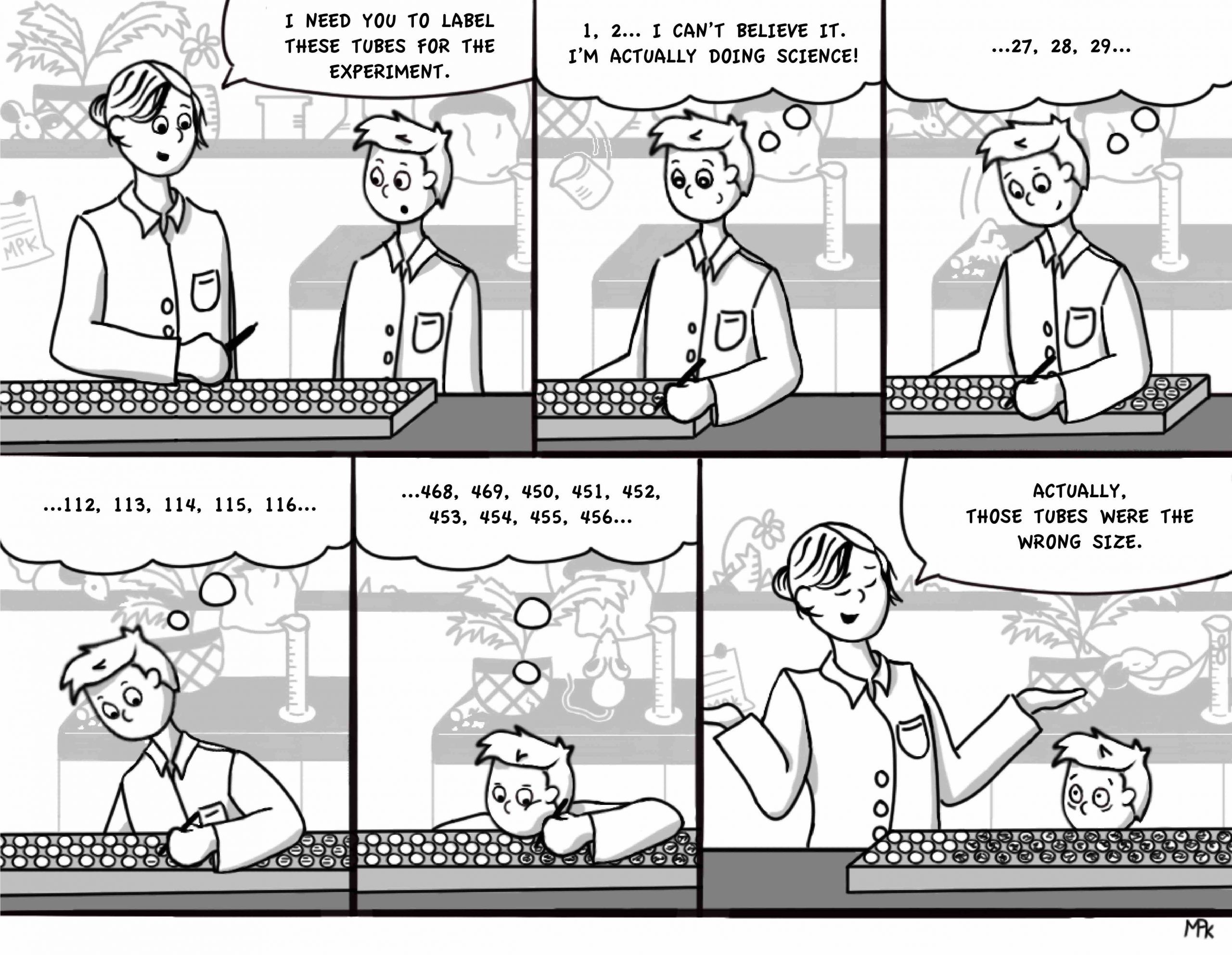
Meet an IGI Scientist: Lien Bertier
This series introduces the public and fellow researchers to our talented scientists. We interview different IGI members to find out who they are and what makes them passionate about science.
—
Dr. Lein Bertier is a postdoctoral fellow in the Michelmore Lab at UC Davis. Her work focuses on developing CRISPR-Cas9 tools to use for genome editing lettuce.
Where are you from?

I’m from a small rural town in the west of Flanders, Belgium. My parents had a horticultural business, which instigated my love of plants.
Why did you become a scientist?
Initially I copied my older brother who is a geologist–I looked up to him. Sometime during my Ph.D. I realized this was really what I should be doing as it is creative and (relatively) independent work. I feel lucky that it’s worked out so far!
What do you like to do besides research?
Dabbling in new creative adventures is a constant source of pleasure in my life. In the past few years, I’ve done glassblowing, winemaking, and solar-oven cooking.
I love being able to incorporate creativity into my work. A few months ago I spent quite a few nights at the confocal microscope taking images for a publication. It felt more like making art than doing science. Better than Netflix!
Describe a funny memory you have of working in the lab or in research.
I asked my undergraduate assistant to label a huge amount of Eppendorf tubes for an experiment. I had just read Lab Girl and told him that new members of the Jahren lab have to label a thousand tubes, after which they are asked to throw them all away. This is a lesson about what research entails: 90% of experiments will fail and you have to get used to that in order to be a happy scientist.
This anecdote just popped into my mind as we were labeling the tubes, but it turns out that the very next day we had to throw them all away because we needed a different type. The look on his face was… memorable.
Tell us about someone or something that inspires you.
I have a dream project of writing a semi-biographical book about a British female scientist, Dr. Eva Sansome. She was a pioneering cytogeneticist who worked on polyploidy, the same topic I was working on in my PhD some five decades later. Something about how she wrote her papers triggered my curiosity. I found out these papers were from when she was working from home during retirement!
When I joined my current lab I discovered that my PI, Richard Michelmore, had published with her back in the early 1980s. Eva had given him some of her life’s work: microscopy slides with chromosome squashes. He also had several handwritten letters from Eva where they were discussing the very same problems I had worked on during my PhD. There are many other interesting facts about her life: she had an influential role in the development of high-yielding penicillin strains at the Cold Spring Harbour Laboratory during the Second World War. Later in life, she and her husband established botany research institutes in West Africa.
The book is a long-term project and I really enjoy doing research for it. If anyone reads this knew her (she passed away in 2001), please email me!
Anything else you want to tell the world?
I am in the last stretch of my maternity leave with my first child. I was quite anxious about how it would all go: juggling care for a newborn while still trying to manage students, continuing my projects in lab, and attending important meetings. The mental load of caring for a young child combined with a full-time job was something I was nervous about.
Luckily, my husband’s employer offered 3 months of paternity leave, which we took to establish our new life with our son. I couldn’t be more grateful for the paternity leave. It made a world of difference in those tough first months. It allowed us to establish a pattern of equal caregiving that will continue when we’re both at work again. Thinking about how society makes most women take on this task mostly on their own makes me sad. I believe that all employers and institutions striving for gender equality should realize that equal parental leave is a must.
